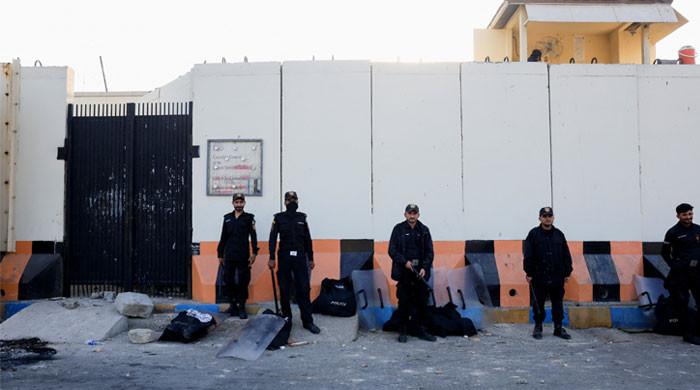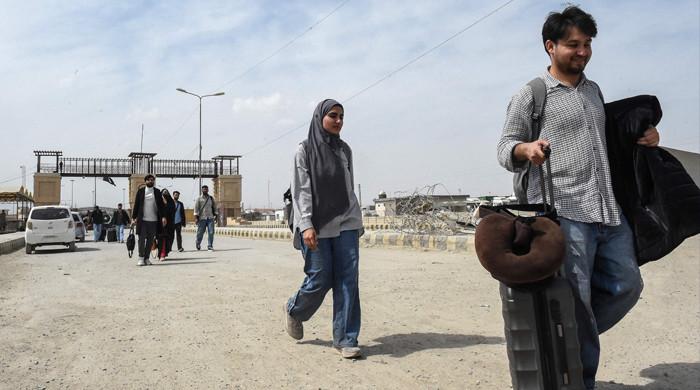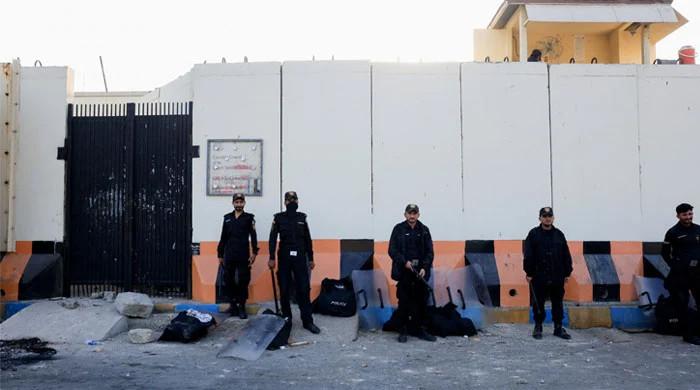Nadra launches registry to help citizens 'identify sex offenders'
Digital rights advocates raise concern over misuse of Nadra’s platform due to absence of legislation, framework
May 13, 2023

KARACHI: The National Database and Registration Authority (Nadra) deployed a new platform — National Sex Offenders Registry (NSOR) — to help citizens and institutions in identifying and tracking sex offenders.
The NSOR will provide information about individuals who have been convicted of sex crimes against children and women through short message service (SMS), according to an official statement issued on Saturday.
“It is a dynamic database of sexual convicts. The links are established with various law enforcement departments and provincial governments so that updates are made in real-time,” the statement added.
It said the move is aimed at making the service more dynamic and responsive to the needs of the institutions and people at large in preventing sexual violence and abuse.
An SMS-based verification service will alert citizens, employers, and departments to beware of such culprits.
"This initiative has always remained closer to my heart, which is a critical step towards safeguarding women and children from sexual violence and abuse," the communique quoted Nadra Chairman Tariq Malik as saying.
He announced that citizens can now use this service to verify the CNIC number of individuals being hired for household chores, at mosques, colleges, universities, or any other employment to ensure they are not sexual convicts, have a clean record, and can be trusted around women and children.
“Preventing even a single instance of child or woman from sexual abuse is not just an act of protection but also an investment in the future of our country,” he added.
Speaking to Geo.tv, digital rights advocate and lawyer Nighat Dad hailed Nadra’s initiative, saying the NSOR will serve as a deterrent to sex crimes but also raised concerns over the use of the newly-launched platform.
“The initiative by Nadra is commendable. However, it also raises a question about whether the system has been launched under any regulation, law or policy,” she said.
“It will work as a deterrent but I also fear that if there are no safeguards and protection around it might be abused as well,” she added.
The rights advocate said it’s important to have laws related to the NSOR so that innocent people “do not become victims of system biases or issues around the justice system”.
She also urged Nadra to also look into false positives saying the law can be misused against those people who had already been convicted due to the weaknesses in the justice system and wanted to live a dignified life.
Nighat also urged the parliament to legislate a law to provide a complete framework for NSOR so that the system is not misused against anyone.
“It raises a huge question on our legislator,” she remarked.
Echoing similar views, digital rights researcher and journalist Haroon Baloch told Geo.tv that if Nadra had established a registry without the consent of a statute, it would compromise the personal data of registrants.
“NADRA will not only be collecting information of registrants but their information will be accessible to anyone with just a single text message,” he added.
Baloch went on to say that the criminals also have dignity rights and their personal information cannot be provided to anyone without meeting the conditions of necessity and proportionality.
He said there is a high probability of misuse of registrants' identities as Pakistan doesn't have any comprehensive data protection law.
In case of any misuse of registrants' personally identifiable data, the courts will be unable to provide remedies to the victims, he added.
It is pertinent to mention that the purpose of this service is to provide common citizens and institutions with quick and easy access to information about sex offenders, particularly those who may pose a potential threat to children and women in our well-knit communities, according to Nadra.
"The information can also be used to locate offenders to prevent future crimes and ensure that they are held accountable for their actions," the institute said.
Upon provision of a computerised national identity card (CNIC) by the individual being hired, the citizens of Pakistan can verify whether they are convicted sex offenders or not by sending a 13-digit CNIC number to 7000 (SMS short code).
Upon verification they will receive a reply in Urdu: “Beware! ABC son of XYZ is a convict. Don’t let him be around children and women.”











